This Month’s Featured Article
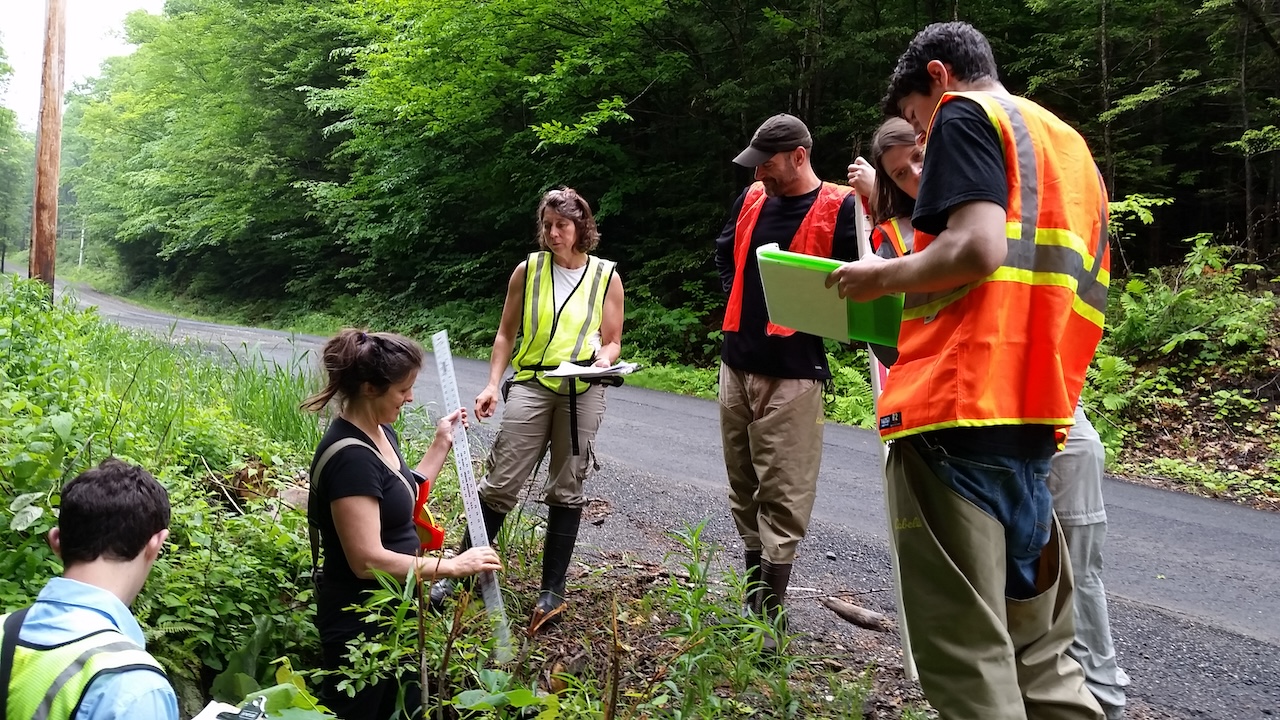
Berkshire Environmental Action Team Connects Community and Nature in the Berkshires
Berkshire Environmental Action Team is a non-profit environmental justice organization based in Pittsfield, MA. BEAT began back in 2002 when founding executive director Jane Winn joined with a group of concerned citizens to protest the poorly sited building of a soccer field at Berkshire Community College. “The environmental faculty at Berkshire Community College said ‘this is great, we can show you how it can be done right,’ and the administration at the time denied their help and proceeded to violate the wetlands protection act while building the soccer field,” Jane said.
Frustrated with this turn of events, the group began learning more about environmental law and in turn, formed BEAT.
BEAT Initiatives
BEAT focuses on three areas of environmental protection: stewardship, which has to do with protecting the land and water connectivity throughout New England; education and outreach; and watchdogging.
“Watchdogging is one of our most prevalent areas of work,” said BEAT deputy director, Brittany Ebeling. “People call us up and say, ‘I see this problem. How can you help?’”
In 2023, BEAT received a federal grant from the Environmental Protection Agency that has allowed it to expand its work to study air quality. The organization has previously done work on shutting down highly polluting industrial plants in Massachusetts (including shutting down two peaker plants), but this grant allowed it to expand that work heartily.
“The EPA grant is really wrapped up in what we see as one new angle that we can take,” Jane said.
“In our hyperlocal community here in Pittsfield, there are neighborhoods that have been red-lined throughout history. A study came out recently that outlined the legacy of red-lining and the disproportionate effects it has on Black and brown communities,” Brittany explained. “I believe the study stated that there is a 12-year life expectancy difference in these communities in comparison to other wealthier, whiter ones in Pittsfield,” Brittany added.
Jane and Brittany believe that air pollution and how it’s affecting people’s lives in the Northeast is a compelling piece of the story to be told. “It brings up the issues of environmental racism, life expectancy, environmental justice, and social justice, among others. We’re trying to stop these sources of pollution in our community and produce a hopeful vision of environmental justice in Pittsfield,” Brittany explained.
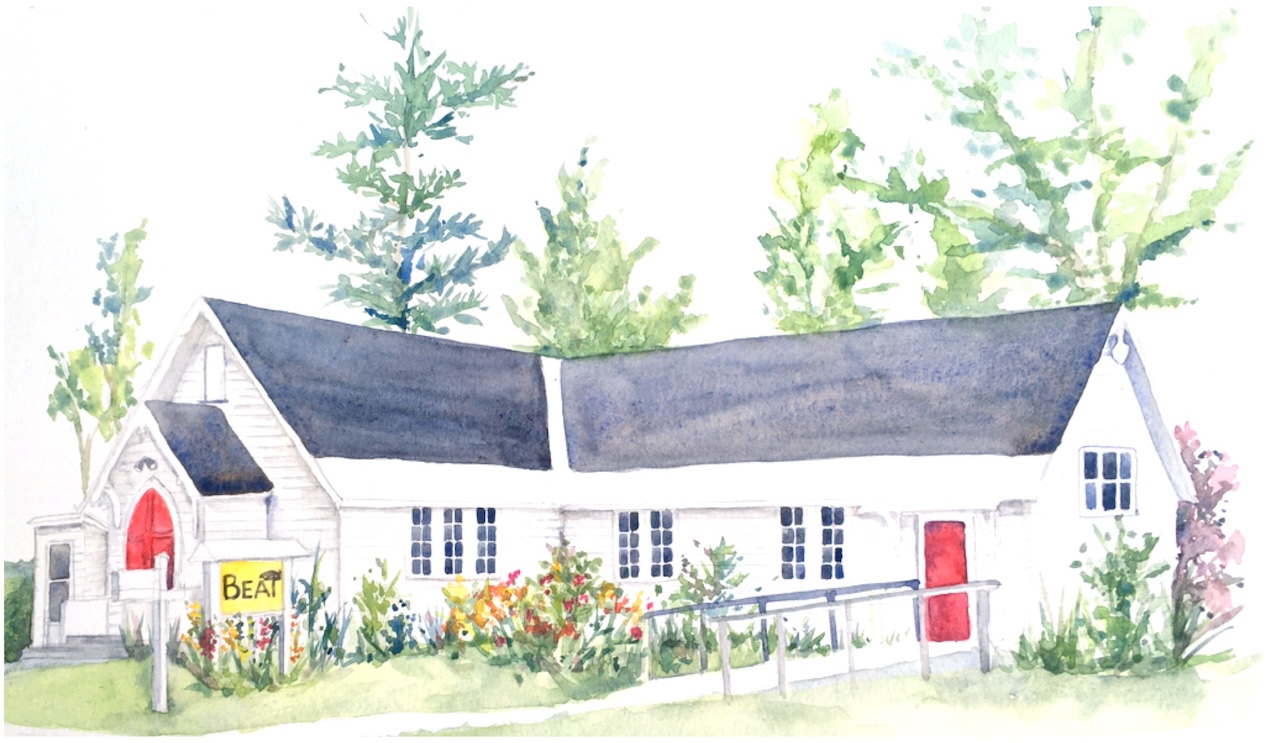
Partnerships
BEAT partners with other environmental organizations on the Berkshire Wildlife Linkage initiative, which is part of the Staying Connected Initiative. This project focuses on making it so that wildlife can safely move through the Hudson Highlands and the Berkshires and to the Green Mountains. Roads are a significant barrier to wildlife movement and migration, and according to BEAT, they also intersect streams and rivers frequently, forcing undersized pipes and culverts to be installed, which in turn, cause significant negative impacts on ecosystems.
One of BEAT’s biggest successes in regards to wildlife tracking is the restoration of a bridge over the Churchill Brook. With partners, BEAT replaced the undersized culverts with bridges that restored the aquatic connectivity and allowed for wildlife passage under the roads. “So much infrastructure is built for cars. Migrations in the Southwest, for example, are disrupted because you have these animals pacing back and forth along a road that has eight lanes of traffic,” Brittany said. “We’re dealing with a different ecological landscape up here obviously, but we’re still working towards how to build an ecosystem that’s safe for both humans and wildlife.”
BEAT is also part of the Berkshire Clean, Cold, and Connected partnership, which is organized by the Housatonic Valley Association. “Those descriptor terms are what we aspire to have our river ecosystems in this area be in order to support wildlife, native plants, and all other indicators of river health,” Brittany said.
This initiative includes pushing for the safe removal of dams, because they can cause ecological harm to wildlife. One of the most recent projects is the removal of the Bel Air Dam in Pittsfield. “The neighboring community will be affected by this change to the river, so we’re focused on engaging in deep conversation with community members that are going to be affected and amplifying their concerns,” Brittany said. “A lot of what we do is translate complicated technical information into a language and format that the average person in our communities can understand and engage with.”
No frack. No kiwi.
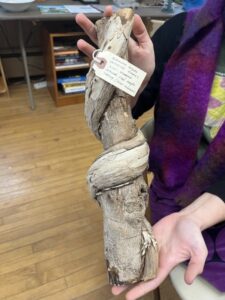
Invasive hardy kiwi
BEAT also works closely with Rosemary Wessel, the program director for No Fracked Gas in Mass, a program that fights fossil fuel infrastructure.
“We’re working on forming a community solar project that is owned by community members,” Jane explained. “We want an equitable transition to clean energy that allows us to engage with the community in ways that are free, accessible, and geared towards creating sustainable change,” Brittany added.
Additionally, each week, BEAT members head to Burbank Park in Pittsfield to remove invasive hardy kiwi. What was once planted as an ornamental vine has now become invasive and is having a negative impact on trees in Berkshire County. Hardy kiwi grows up and over other plants, creating a mat of vines several feet thick that blocks sunlight from reaching the forest floor. From there, the vines grow to the tops of trees and create a curtain of sorts, which then pulls trees to the forest floor and causes gaps in the canopy.
“We have a commitment to not using pesticides, and we selected this project because we believe that we can make a difference by simply cutting the kiwi down,” Jane explained.
Community outreach and engagement
BEAT is committed to creating strong relations with the community and educating neighbors on the environmental happenings in the Berkshires and the surrounding areas.
BEAT hosts river clean ups, a monthly speaker series, and an annual kids-in-kayaks program, which teaches young people about how rivers work, what organisms can be found in the Housatonic River, and how to safely navigate the river.
“A big piece of what we do is engaging with the community in accessible ways,” Brittany said.
At its new location on Chapel Street in Pittsfield, BEAT is looking to create an educational leadership center and make it accessible to all community members. The goal is for the entire building to be net zero energy, have solar infrastructure and battery storage, and host an education exhibit hall and a lab where it can conduct research on the river.
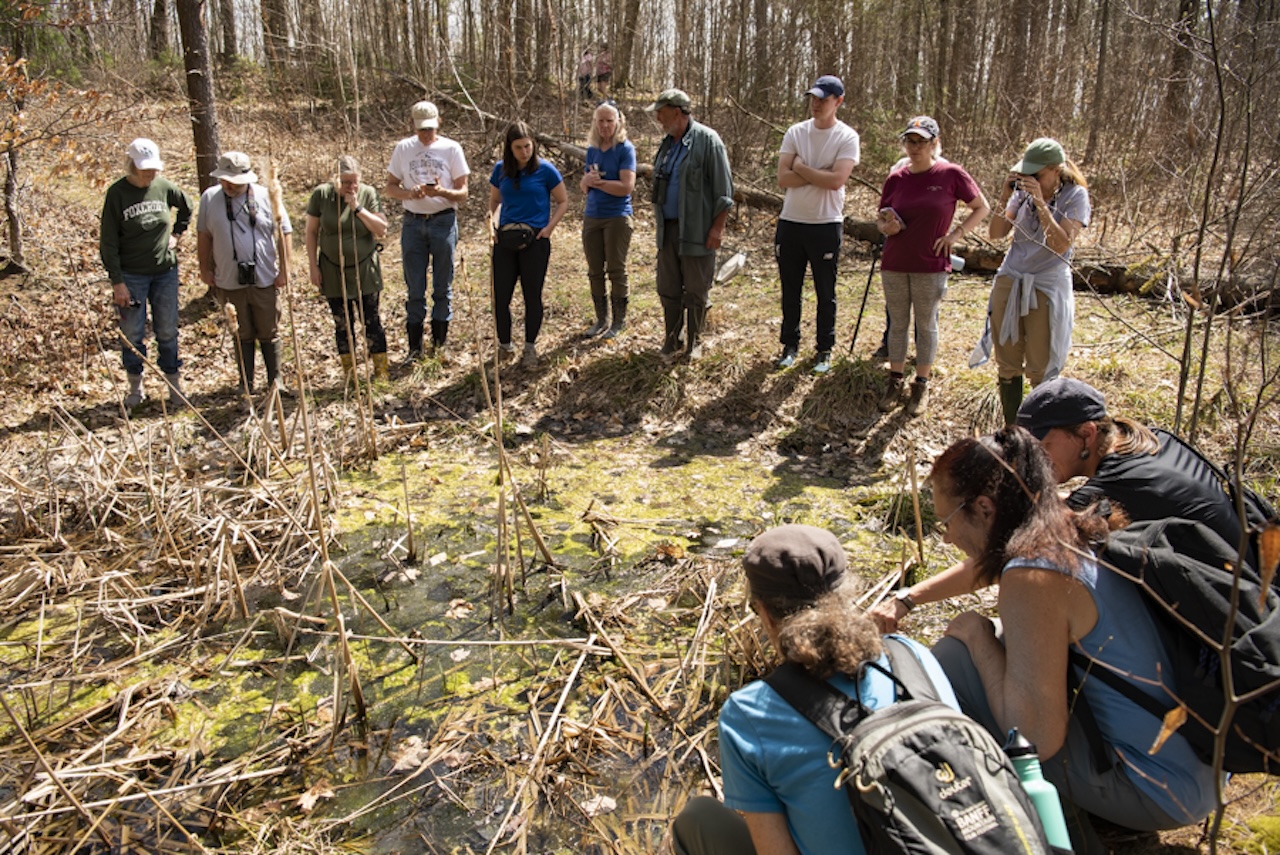
Avoiding environmental and personal burnout
Sometimes trying to make serious environmental and social change can get very overwhelming. “The general challenge is that BEAT is trying to create social change and change people’s behaviors to try and get us off of the disastrous course that we’re on, and that’s an upstream battle,” Brittany said.

While BEAT has been able to make community connections that have allowed it to make meaningful ecological progress, it acknowledges the challenge is difficult. “For me, it helps to focus on something I know I can control and change,” Jane said. “Many people look at the climate disruption and feel overwhelmed. Doing this work is actually my relief from that. By tackling little pieces, I can really make a difference.”
Brittany said that it’s important to be aware at what entry point you can be effective. “I feel that frustration a lot, and I get motivated by it,” she said. “I express my frustration to Jane, but I don’t let that be the stopping point. It’s all about being the change that we want to see and not being defeated when one pathway isn’t effective.”
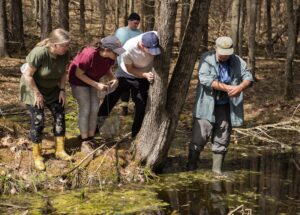
Vernal pools workshop
BEAT also stresses the importance of campaigning at a local level and enacting change from the ground up. “Back in 2013 and 2014, a huge gas pipeline was supposed to be put in across Massachusetts. When we went to the Berkshire Regional Planning Commission, they told us it was a done deal,” Jane said. “It was not a done deal. We did presentation after presentation across the state and grassroots protests rose up everywhere we went. We’ve won fights where people said we’d be defeated. It’s important that we understand that not everything is a done deal just because someone says it is.”
Beyond the physical rewards of stopping pipelines and shutting down polluting power plants, Brittany and Jane find it rewarding to know that they can make a difference. “One of the biggest rewards is knowing that I as an ordinary person without a law degree or a big fancy title in the government can join with other ordinary people in the community to make an environmentally just future and stop what’s ailing our community,” Brittany said. “It gives me hope in a way that’s not sappy or cheesy but powerful.”
Next steps
Going forward, BEAT’s long-term goals include getting fossil fuels out of the Northeast completely. It also aspires to see land protected and treated as sacred, as well as to keep the air clean to ensure an equitable environment for everyone. BEAT also hopes to continue organizing and facilitating community connections to get as many people involved and informed as possible.
“We want environmentally just communities where there aren’t health disparities based on where you live,” Brittany said. •
To learn more about the Berkshire Environmental Action Team, visit thebeatnews.org. To sign up for its newsletter to remain informed about environmental news or volunteer and job opportunities in the area, visit thebeatnews.org/BEATTEAM/weekly-newsletter-archive.


